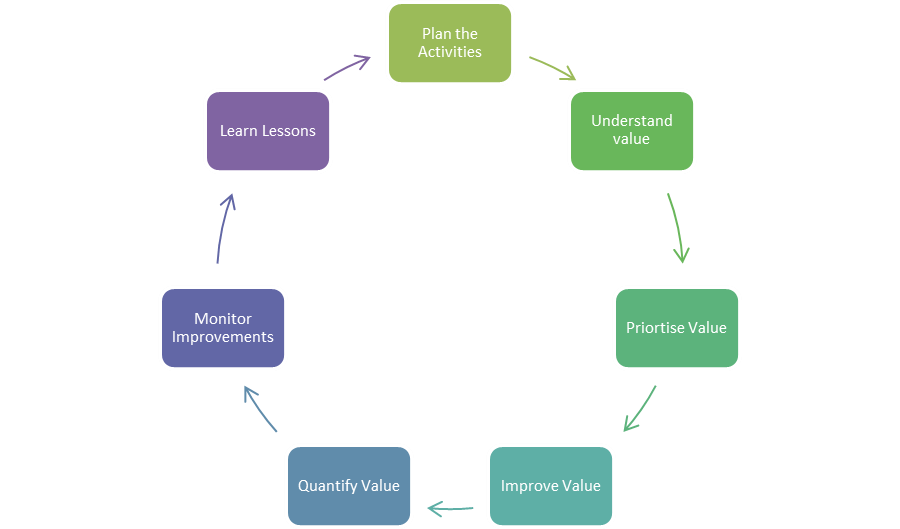Course Content
Overview to MoV®
- Define Value
- Define MoV®
- Why It Is Needed
- It's Place In The Cabinet Office Best Practice Guidance
- It's Relationship To Other Management Methods
7 MoV® Principles
- Alignment With Organisation's Objectives
- Tailor methods to suit The Subject
- Learn from experience and improve performance
- Functions and Required Outcomes
- Balancing the Variables To Maximise Value
- Apply Throughout the Investment Decision
- Assignment of Roles and Responsibilities
- Build a Supportive Culture
MoV® Environment
- Know external and internal factors that affect policies and strategies of MoV
- Describe the portfolio, programme, project and operational environments
MoV® Embedding
- Understand Process of Embedding
- Key benefits of embedding MoV®
- Key steps of embedding MoV®
- Roles and responsibilities required when using MoV®
- Overcoming barriers to implementation
The 7 MoV® Processes
- Frame The Programme Or Project
- Gather Information
- Analyse Information
- Process Information
- Evaluate & Select
- Develop Value Improving Proposals
- Implement & Share Outputs
Applying MoV® Methods
- Implementing MoV®
- Preparation of MoV® methods
- External and internal factors
- Assortment, Plan, and Project thoughts
- Operational deliberations
- Implanting MoV into an organisation
MoV® Techniques
- New Techniques in MoV®
- Techniques that can be implemented within MoV®
- Function Analysis
- Function Analysis System Technique (FAST)
- Traditional FAST
- Technical FAST
- Customer FAST
- Value Trees
- Measuring value
- Value profiling (value benchmarking)
- Simple multi-attribute rating technique (SMART)
- Value index
- Value metrics
- Value for money ratio
- Value Engineering / Analysis
Common techniques used in MoV®
- Analysis of information
- Benchmarking
- Process Mapping
- Root Cause Analysis
- Discounted Cash Flow Analysis
- Generating Ideas
- Brainstorming
- Evaluation and option selection
- Option Selection Matrix
- Idea selection
- Allocation to Categories
- Idea Selection Matrix
- Weighting techniques
- Paired Comparisons
- Points Distribution
- Developing VIPs
- Developing Proposals
- Cost Benefit Analysis
- Building Decisions
- Implementing VIPs
- Implementation Plans
- Feedback
- Following up
- Tracking Benefits
Implementing MoV®
- Planning MoV® Activities
- Responding To External & Internal Factors
- Portfolio, Programme & Project Considerations
- Operational Considerations
- Embedding MoV® Into An Organisation

 ENQUIRE
ENQUIRE
 REQUEST CALLBACK
REQUEST CALLBACK
 GET A FREE QUOTE
GET A FREE QUOTE


 Introduction
Introduction Course Details
Course Details Course Content
Course Content




 London
London